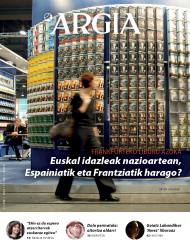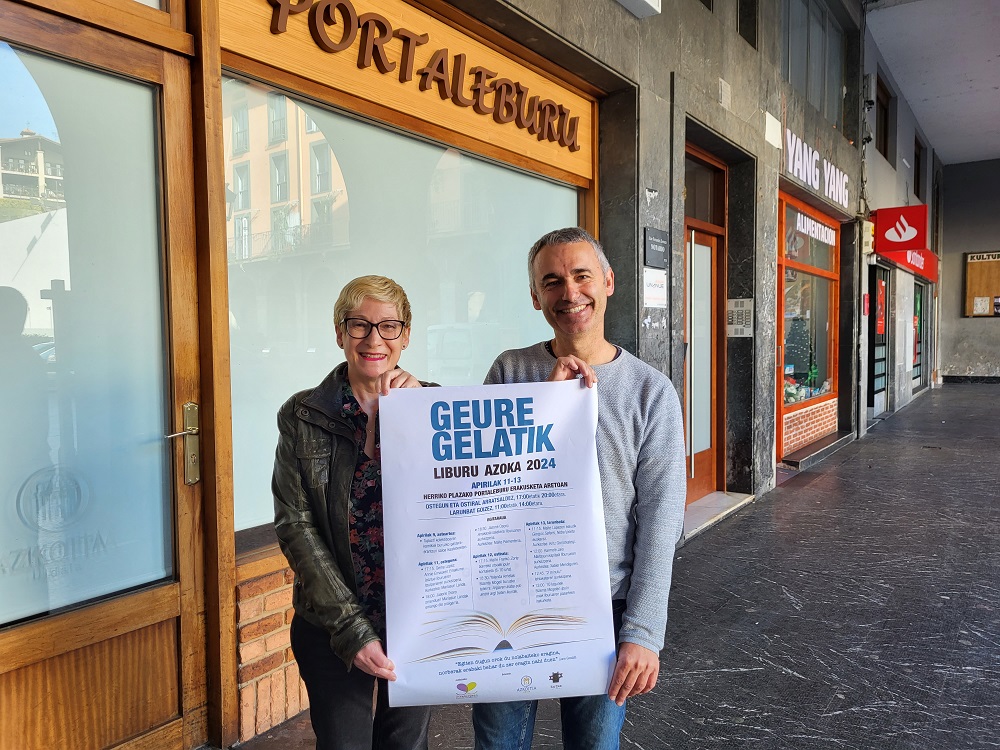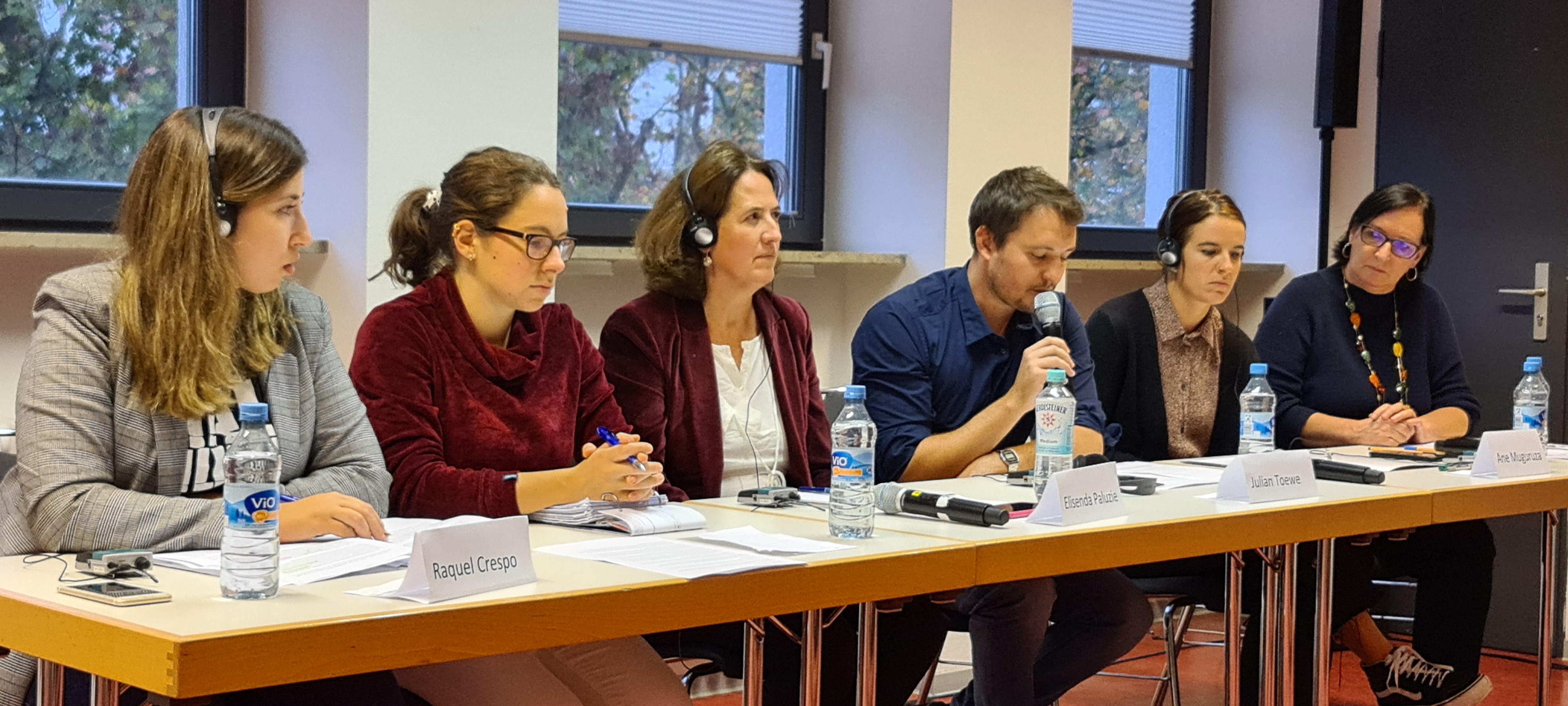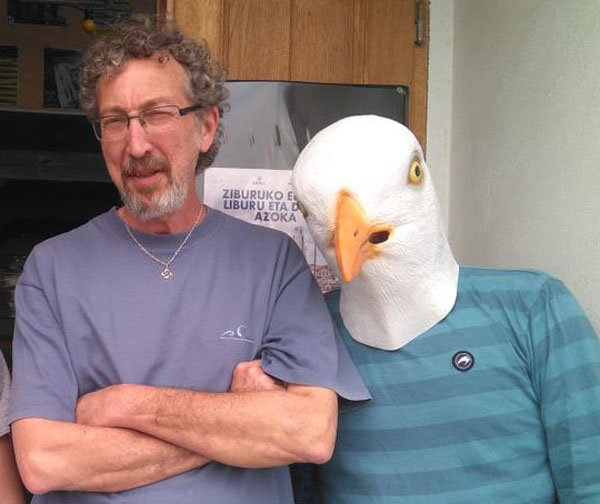“We should consider Basque writers as flags in the world”
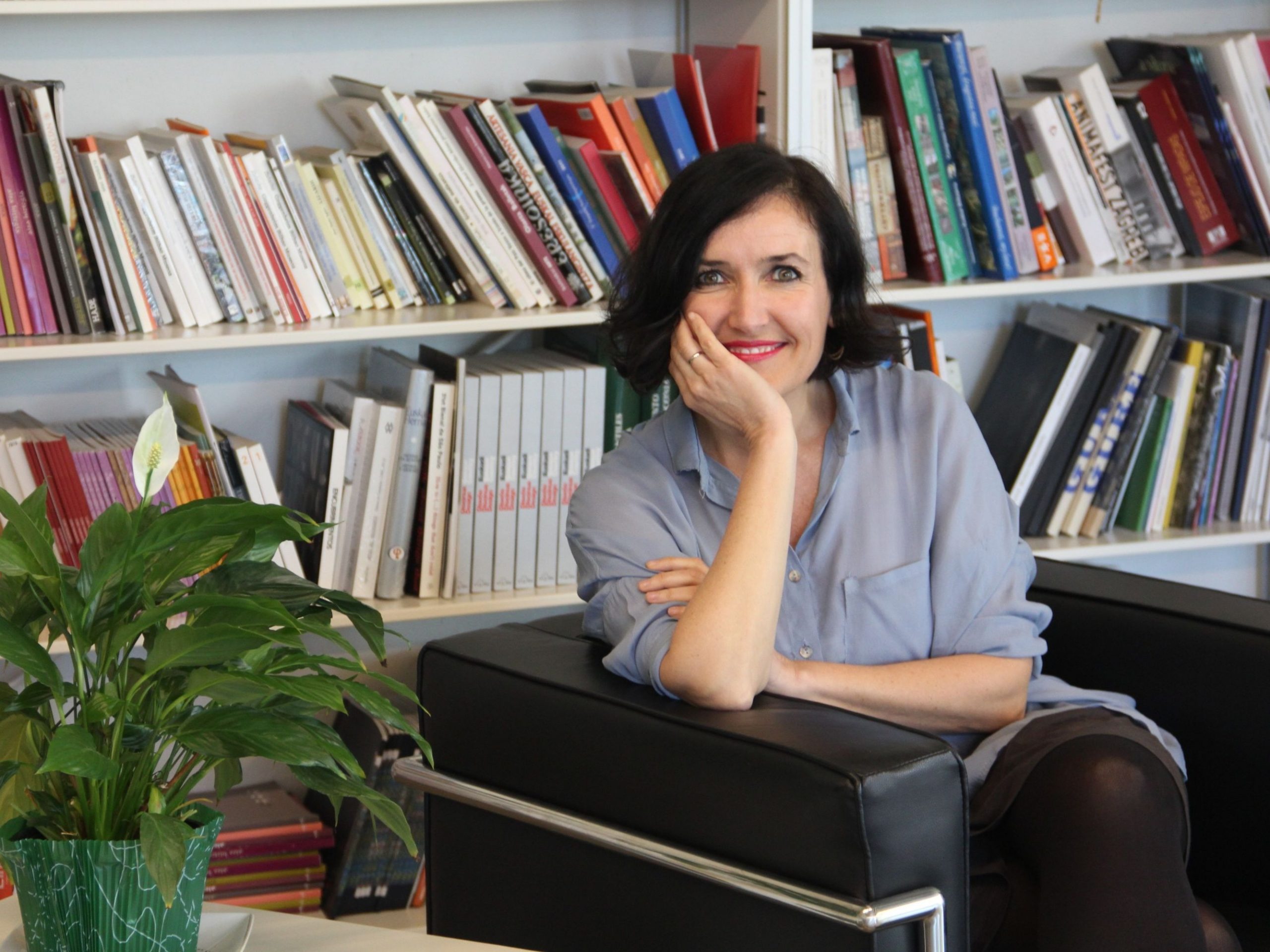
What is the role of Etxepare at a fair like Frankfurt?
Our role in general is not in the market sphere. There are professionals, in this case editors, authors, translators… a whole system. The fair in Frankfurt is a fair for the sale and purchase of rights, not a fair for the promotion of books or the dissemination of authors. It's different from participation in other fairs. But a place like Frankfurt is interesting because here are many interesting organizations and agents coming together and somebody in this world. We organize meetings, contacts are made. And in this sense, it's a really interesting space.
This year, as Spain is a guest country, some Basque writers have already been invited and the Basque editors have decided not to dedicate more than that to the presence of their authors. If it wasn't, we would do a little festival right here.
And which plaza is more important in this regard?
The Bologna fair is very important, for example, in the field of children's and youth literature. There are things like Gothenburg, with another measure, and we can have more presence. And more impact. The FIL of Gudalaja, or that of Miami, have always been very important to us.
Is this Basque stand also the result of collaboration? Editors, illustrators, because Etxepare himself is together.
For years now, the network of editors and writers with agents has become increasingly powerful. Those who have internationalization on their agenda. We bring a collection of publications. It's not for sale, it's a dissemination material, it's a material that talks about language, literature, cinema, art, and we make it available to the public for free to give context to our literary production. We want to tell who we are through culture so that we can understand what we are offering here.
Has Etxepare affected Spain being a guest country?
This stand is bigger than ever, but that's what answers that this year the illustrators are with us, especially. Publishers and illustrators are together showing their work to the world. Giving this dimension happened this year, but we want it to remain so.
This has been done by the editors, along with the Government's department of culture. This strong presence benefits the entire Basque book system. As in dissemination, we are making prestige for writers. We have to raise our heads in the world, and many times it happens to us that when we launch into the world we have to explain who we are, but we have to demonstrate our level. Tell him that we are here and then tell us who we are.
What have you received here these days? What are you going to get back to Euskal Herria, to daily work?
On the one hand we have a great relationship with the Catalan foundation Llul. In addition to the Catalan editors, the Barcelona City Hall is in place. So do the editorials. It's a very interesting and bigger model than ours. Catalan writers also have their own network of agents. To some extent, some of its ways of doing, which for us are exemplary, we must work our own model. We are showing great power even though we are smaller or weaker than others. These days we have heard Basque writers inside and outside the fair, like Beyond Spain. I believe that our creators are significant protagonists, when we hear with other authors we realize the level that exists in the Basque Country. They have an impressive intellectual speech, they write in Euskera and they show up to anyone. It seems to me that Basque writers should be considered flags in the world.
Not all writers are still in the international arena, but we are gradually increasing. We tried to create Basque windows at many international festivals. Writers have the opportunity to travel internationally, but then we have to respond. It is our responsibility to facilitate this by creating translation grants, etc.
Here's a world, in these kinds of fairs, new opportunities will also emerge.
We must follow places of interest that the sector views or create new, more conceptual relationships. We've worked Québec, we're working with Scotland. They know us and they want us. This is a work that is being levelled, that we have had meetings with Welsh to translate from Basque to Welsh and bring it from Wales to us. Our choice is to carry out what cannot happen in industrial logic. For example, Wales has no physical presence as a language and culture here, it doesn't have a stand. But he's had two people circling, relating, working. It's a model. Quebec or Flanders have a very important presence at all fairs. How we have it Basque.Books.







